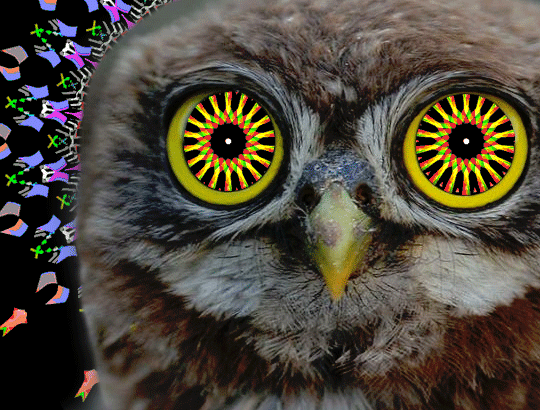Keep in mind I'm paraphrasing this from memory but:
"In my main line of work, we breed fruit flies. We noticed that the some of the more aggressive males would fight over a bit of land, plant, whatever, to court females. We wondered what would happen if we only let the aggressive flies breed, and within 10 generations we had flies that were like Hercules (fruit flies breed very fast which is why they are used to study genetics and evolution). We then reintroduced them back to the more natural population of flies. What ended up happening was; while the aggressive flies were busy fighting, the non-aggressive males were hanging out with the females and making babies. The aggression was quickly bred out and after a couple of generations it went back to initial levels. We often hear the phase 'survival of the fittest' in this field of study, but just a reminder that it doesn't always mean what you think it means."
I thought that was an interesting aside that you might enjoy. ![]()


There's a long-term evolution experiment studying mice that reminds me of this. The experiment breeds mice that like to run, the mice that run more get bred together. After 90 generations the "fast runner" group has remarkably enhanced aerobic capacity. They can outrun any mice from the other groups, but also they only like running. They don't like eating, don't like mating, and get agitated when they're tired. The only thing that calms them down is ritalin (ADHD medication) which makes them behave more like normal mice.
I'm guessing in the wild this group would quickly get bred out of a population, like the fruitflies
Me selectively breeding humans that love to party to create the ultimate party rocker.
we already have andrew wk
Why haven’t they introduced this population to another neutral population? A 90 generation difference would make for very interesting studies.
There are four control groups of regular neutral mice that are used for breeding and comparison